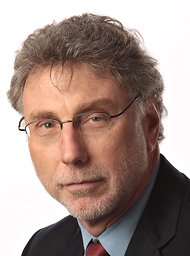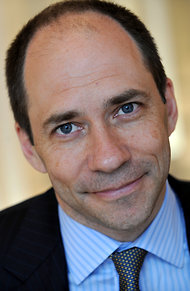But their attitudes toward money and investing can create financial challenges later in life. And the years of education that got them to where they are, their financial advisers say, can also stand in the way of their financial decision-making.
As Greg Erwin, managing principal at Sapient Private Wealth Management who works with doctors, put it, “A lot of these physicians would like to believe that investing and savings is pure science, and that’s not true. It’s an art form.”
Over the last two columns, I have looked at the behaviors of some highfliers — athletes and people who make their living drilling and transporting oil and gas; and those who have built their wealth in volatile fields like technology and real estate.
In each of those cases, I asked financial experts to share their insights into the financial and investing mistakes that are often typical of these clients. In this column, I’m going to look at what the rest of us can learn from doctors and lawyers.
DO NO HARM Doctors have a reputation among financial advisers for spending every bit of money they make. They earn a lot, after all, and figure they can work a long time. But doctors who engage in this type of spending can forget how hard it will be to maintain their lifestyle in retirement without millions of dollars saved.
“Doctors can have a sense of entitlement,” said Lewis Altfest, chief executive of Altfest Personal Wealth Management, who has a specialty in advising doctors. “Doctors are highly respected in their communities. They have historically been among the most gifted intellectually and they’re not afraid to exercise it.”
(He has dentist clients as well, but said they generally acted more like accountants than doctors: conservative and more risk-averse.)
While doctors are certainly smart, their medical ability does not necessarily translate to financial acumen.
Mark Gurland, 59, a hand surgeon in New Jersey who is married to a psychiatrist, said he had a theory about doctors’ financial behavior. Since most do not finish their internships and residencies until age 32 — if they have gone straight through from college — they have been living cloistered existences even as their college friends have been working for at least a decade.
“When they’re done, my feeling is, there is this repressed self-sacrifice and when money appears, they’re living in huge houses and driving the fanciest new cars,” he said. “They have a lot of money they worked hard for, and they’re spending it.”
On the investment side, he said, doctors often believe that their knowledge of medical issues translates into something seemingly simpler, like investing.
Dr. Gurland, who has always been a saver, said he had been guilty of making investments on a tip or a hunch. A cardiologist friend persuaded him to invest in fiber optic cables a decade or so ago: he said he doubled his money and then lost almost all of it. When he invested in a company that was promoting a drug for hand surgeries, he thought he had a winner but lost money on that one as well.
Now, he said, he defers to his adviser on investments and thinks of some of his most annoying patients who try to tell him what’s wrong with them. “Every day, we see patients in today’s world who seemingly know more about medical conditions than the doctor,” he said. “Why? Because they went on the Internet and read about this.”
Mr. Erwin, the adviser, said he tried to offer doctors a financial plan that dealt with their desire for rewards. At the same time, he lets his clients know about the risks inherent in not saving and in trying to fit in time for investing when they have an all-consuming job.
“They’re very methodical thinkers, but they’re also extremely busy,” Mr. Erwin said.
He said he spent time coaching his doctor clients not to get swayed by a friend who thinks they should invest in something they know nothing about or has an opinion about timing the market.
But doctors generally get two important things right. Doctors, particularly those with a unique specialty, buy disability insurance because they know that if they can’t work as a hand surgeon, for example, their income will plummet, even if they can still work as a doctor in a different capacity.
Given their high incomes, they can eventually be persuaded to defer a large portion of their income into retirement plans to lower their current tax bill. Mr. Altfest said he had clients contributing as much as $150,000 a year often in a defined benefit plan, but it many cases it took showing them how dire retirement could be if they didn’t save. Yet those who have the bulk of their savings in retirement plans can end up with a different problem, Mr. Erwin said. Since the doctors never paid income tax on that money, it is taxed as ordinary income when they withdraw it. People who save in brokerage accounts, by contrast, pay the lower capital gains rate when they sell those securities. And most other professionals have nontax savings to balance the tax bill from their retirement account distributions.
Article source: http://www.nytimes.com/2013/03/30/your-money/money-advice-for-doctors-and-lawyers.html?partner=rss&emc=rss

